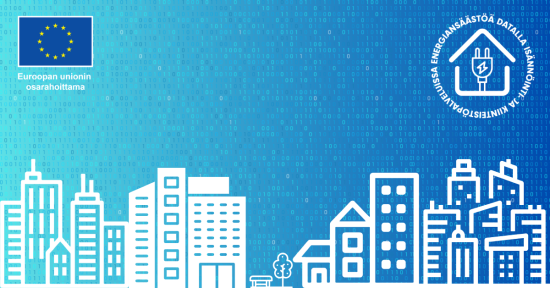The Data Spaces Alliance Finland network brings together Finnish pioneers in the use of data for business. The network offers its members the opportunity to develop cross-organisational data space solutions. Along with 21 other organisations, TIEKE is a founding member of the network.
The network, launched at the Nordic Data Festival 2024 on 10 April 2024, brings together major Finnish actors and active data space projects. The network will thus improve Finnish competitiveness in data economy at both European and international level.
TIEKE helps businesses exploit the potential of data spaces
The main mission of the new alliance is to make the data space more accessible to companies and other organisations. It is a common interface for data-space information for companies.
The alliance will share experiences on data spaces among its members and build up a common overview that will help to define Finland’s data space needs and make it possible to keep pace with developments.
The creation of the network was an important step, as data spaces will affect many companies and other organisations in the near future. As one of the founding members of the Alliance, TIEKE is excellently placed when it comes to European data space developments.
This will enable TIEKE to gather information and create common guidelines for action. The organisation can also select the best technology and practices for Finnish companies and other organisations.
“TIEKE provides small and medium-size enterprises with a clear path ahead when it comes to the use of data spaces. We aim to ensure that companies have the skills they need to connect to new ecosystems and value chains in a way that best supports their operations. Our long-standing digital expertise supports Finnish organisations in harnessing the opportunities of the data economy,” says TIEKE’s Executive Director Hanna Niemi-Hugaerts.
Data spaces are a natural part of TIEKE’s activities, as they are a modern way of meeting the demands of the growing data economy. TIEKE helps businesses and other organisations in the data space in different ways, for example by raising awareness, supporting knowledge exchange and workable solutions for scaling up, and by operating in networks that support businesses.
Keep up to date with data space regulations!
In addition to the opportunities offered by data spaces, Niemi-Hugaerts says, organisations also need to be alert to new regulations. TIEKE supports companies’ regulatory expertise, for example through a project with the Office of the Data Protection Ombudsman.
“Together with the Data Protection Ombudsman, we’ve developed a tool that makes it easier to understand data protection matters and companies’ obligations in the changing data economy.”
Data spaces will also provide ways to guide the development of AI and display data in the EU’s digital product passports,” Niemi-Hugaerts says.
“In data spaces, the owner of the data, such as a company, can decide what data is shared, with whom and for what purpose. This can be used to determine, for example, what data AI language models are allowed to access when the models are being trained. The definition will also make it easier for AI application developers and trainers, as data made available with permission won’t cause problems in the future.”
The EU’s digital product passports, for their part, can collect the information displayed in the passports from the original data sources and compile them into the necessary displays for those who need the information, such as order-delivery chain operators or the authorities.
“TIEKE is also trying to help in these new areas. We want to give businesses the opportunity to look ahead and prepare well.”
Data economy growth requires knowledge and resource management
The data economy is one of the European Commission’s key development areas. It is expected to grow to a value of EUR 829 billion in the EU by 2025.
In projects of this scale, the resources of individual companies and other organisations are not sufficient to gather, filter and process all the information. As part of Data Spaces Alliance Finland, TIEKE helps companies in this. The purpose of the alliance is to be a one-stop shop, providing help and support in understanding and utilising data spaces.
“Our goal is to help companies improve their operations and launch new businesses, data products or data-based services,” says Niemi-Hugaerts.
According to her, Data Spaces Alliance Finland is one of the additional forums in the network of TIEKE partners that are developing the Finnish data economy. In addition to the alliance, TIEKE is involved in the Data Economy Roadmap of the Finnish Innovation Fund Sitra, which provides an overview of the Finnish data economy.
TIEKE is anchoring its role in the data space through four main roles that respond to the future challenges companies face in data-driven business operations.
- Involving SMEs in data spaces:
Raising awareness and business awareness of opportunities, development and business support led by small and medium-size enterprises (SMEs). - Developing data and data business skills and regulatory understanding to develop data capabilities for supporting the utilisation of data spaces in selected target groups.
- Pilots related to competence and especially Open Badge data:
TIEKE manages the national Open Badges for digital skills register and coordinates the Badge Finland network, making it possible for pilot projects on different themes to be developed quickly. A pilot of the circular economy label is currently underway. - Consideration of Green ICT criteria in the definition and implementation of data spaces.
Want to join the alliance?
- Members of Data Spaces Alliance Finland can be organisations that are key partners in a Finnish data space project (creators) and organisations that enable Finnish data space projects through funding and resources (supporters).
- The target groups of the alliance are companies and organisations that use or could use data spaces in their operations (users).
- The alliance offers data space projects support for growth and co-learning, as well as an efficient way to connect to pan-European networks.
- Read more on the Data Spaces Alliance Finland website: https://www.dataspacesalliance.fi/
Collaborate with TIEKE?
Want to help organizations in themes such as digital competence, data economy, real-time economy, or sustainability? Partner with us!
TIEKE Finnish Information Society Development Centre is a non-profit organisation founded in 1981 aiming to develop, improve and support a thriving information society and all its digital endeavours.
We help organizations in various ways:
- Projects and initiatives
- Networking and ecosystem work
- Surveys and studies
- Expert services and advice
- Webinars, online trainings and coaching programmes
- Materials and guides
We have a track record working in various project roles: coordination, partner, expert, comms and more.
We run around 15 projects per year and are familiar with instruments such as CERV, Erasmus, ERDF and ESF.
We work with wide array of target groups such as SMEs, large companies, educational organizations, public sector and associations.
Don’t hesitate to get in touch to discuss collaboration opportunities with us!










